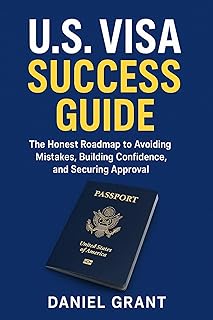Ammar Hassan is among the first batch of international students applying for Australian student visas under revamped requirements. Despite the government’s plan to cap international student numbers, Hassan sees hope in the new visa rules introduced in March. His optimism stems from the belief that the regulations will enhance his chances of entry, especially after facing a rejection last year.
The Australian Department of Home Affairs replaced the Genuine Temporary Entrant (GTE) requirement with the Genuine Student (GS) criterion. This new rule aims to evaluate applicants’ genuine intent to study in Australia based on their future contributions to their career and community post-graduation, whether in Australia or their home country.
Mr. Hassan’s previous visa application was declined due to not meeting the GTE criterion, which assessed his economic situation and ties to Pakistan. With the implementation of the GS requirement, there has been a notable increase in student visa grant rates for Pakistani nationals seeking Vocational Education and Training degrees in Australia.
While the grant rates have improved, experts like Professor Lesleyanne Hawthorne express skepticism about the changes. Professor Hawthorne believes that the stricter rules may deter individuals with weaker prospects from applying, leading to a self-filtering effect among potential applicants.
Despite the positive outlook from some applicants, migration agent Gurpreet Dhawan describes the GS requirement as “old wine in a new bottle.” Dhawan expresses disappointment as the refusal reasons for visa applications remain similar under the new regulations, indicating that little has changed in the assessment process.
Mr. Hassan’s friend, Amir Akhtar, shares concerns about the application process, influenced by stories of refusals faced by others. Despite the challenges, Akhtar remains hopeful about pursuing his studies in Australia, drawn by the promise of high-quality education, a diverse culture, and the opportunity for personal and academic growth.
The recent changes in international student visa regulations highlight the evolving landscape of student migration policies in Australia. These adjustments not only impact individual applicants like Mr. Hassan and Mr. Akhtar but also reflect broader trends in the education sector and government initiatives to regulate student migration.
As Australia navigates these policy changes, stakeholders in the education sector, including migration agents, experts, and prospective students, continue to assess the implications of these regulatory shifts. The delicate balance between enhancing opportunities for international students and ensuring compliance with visa requirements remains a focal point in the ongoing discourse surrounding student migration policy.
In conclusion, the evolving dynamics of international student visa regulations underscore the complexities involved in facilitating global mobility in the education sector. While some individuals perceive the changes positively, others express reservations about the impact on application outcomes and the overall student experience in Australia.
📰 Related Articles
- Australian Visa Rules Overhauled: Key Changes Impact Applicants
- Trump’s Foreign Student Policies Impact Australian Education Landscape
- Policy Changes Impact Australian Universities’ International Student Recruitment
- Maximize Success: Navigating Australian Student Visa Process Efficiently
- Federal Judge Rules in Favor of Marshall University Student Facing Visa Termination






